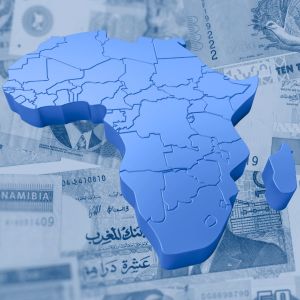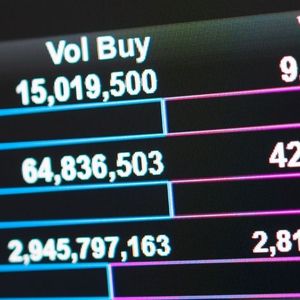Africa’s ambition to reduce reliance on the US dollar for cross-border trade is still far from bearing fruit, but more countries are now adopting local currency payment systems. Some nations are using regional mechanisms like the Pan-African Payments and Settlements System (PAPSS) for intra-African trade without defaulting to the greenback. Since Donald Trump’s return to the White House, his administration has fought any attempt to diminish the dollar’s dominance, issuing tariff threats and warning nations that steer away from the US currency. According to data from Trading Economics, the US Dollar Index (DXY) fell to 98.652 on Friday, June 20, marking a decline of 0.253 points, or 0.26%, from the previous trading session. Over the past four weeks, the index has dropped by 0.91%, while its value has fallen by 6.78% over the last 12 months. PAPSS could take out dollar dependency PAPSS is a payment network that enables buyers and sellers in different African countries to trade in their local currencies. Instead of routing transactions through foreign correspondent banks and converting into dollars, a Zambian buyer, for instance, can now pay a Kenyan seller directly, with each party transacting in their own currency. Mike Ogbalu, chief executive of PAPSS, said the platform does not explicitly de-dollarize the continent, but tackles logistical and financial inefficiencies that plague it. “ Our goal, contrary to what people might think, is not de-dollarization ,” Ogbalu said. “ If you look at African economies, you’ll find that they struggle with availability for third-party global currencies to settle transactions .” According to PAPSS, a $200 million transaction between two African parties could incur fees ranging between 10% and 30% under the old model. Local payment systems could reduce that cost to as low as 1%. Using local currencies like the Nigerian naira, South African rand, or Ghanaian cedi could save the continent up to $5 billion annually in hard currency outflows, Ogbalu told Reuters. PAPSS launched in January 2022 with just 10 banks and has since expanded to 150 commercial banks across 15 countries, including Kenya, Malawi, Zambia, and Tunisia. Trump’s threats hang over de-dollarization efforts After the BRICS bloc , which includes South Africa, Egypt, and Ethiopia alongside Russia, China, India, and Brazil, floated the idea of reducing dollar reliance and introducing a common currency, Trump responded with economic threats . “ There is no chance that BRICS will replace the US Dollar in International Trade, or anywhere else ,” Trump posted on Truth Social in January. “ Any Country that tries should say hello to Tariffs, and goodbye to America! ” True to his word, Trump has escalated the levies beyond threats, slapping nations looking for alternatives to the greenback with double-digit percentages. The president’s use of tariffs as economic coercion has already disrupted international trade norms. Daniel McDowell, a Syracuse University professor specializing in international finance, warned that Africa’s actions, even if cost-driven, may be perceived as political. “ The perception is likely to be that this is about geopolitics ,” he argued, “ Africa will struggle to distance itself from more politically motivated de-dollarization efforts, like those led by China and Russia .” Cryptopolitan Academy: Want to grow your money in 2025? Learn how to do it with DeFi in our upcoming webclass. Save Your Spot



















